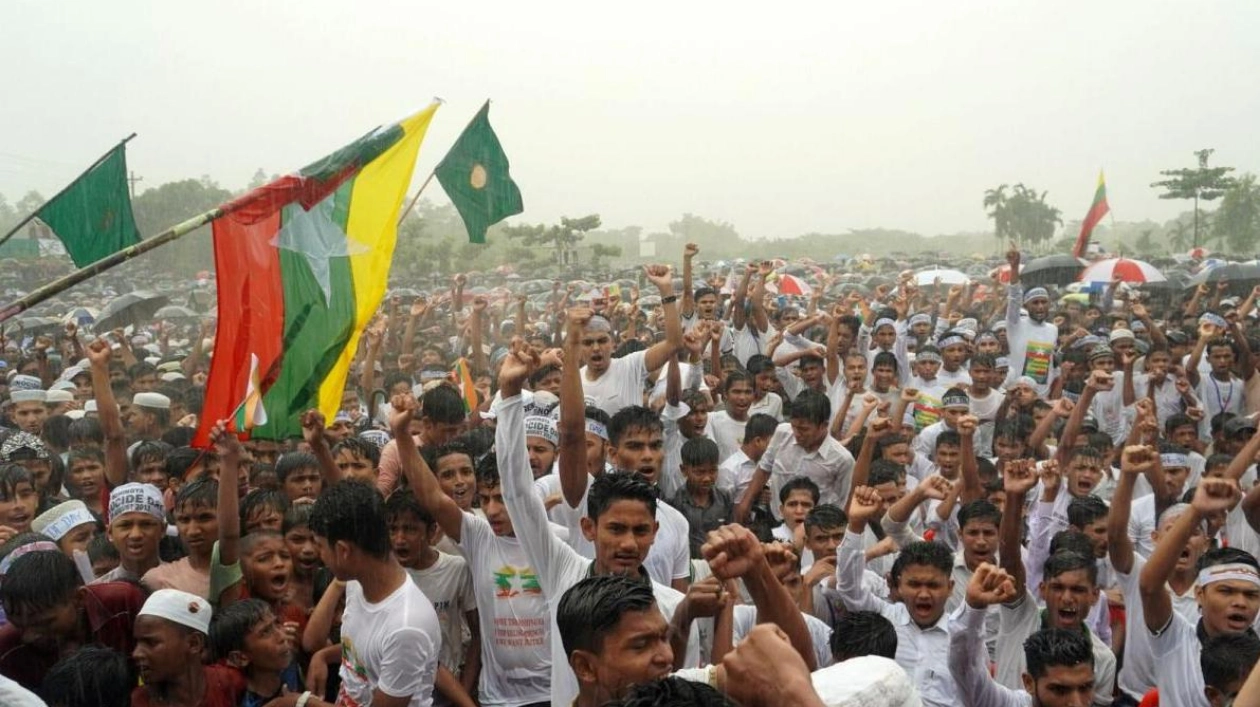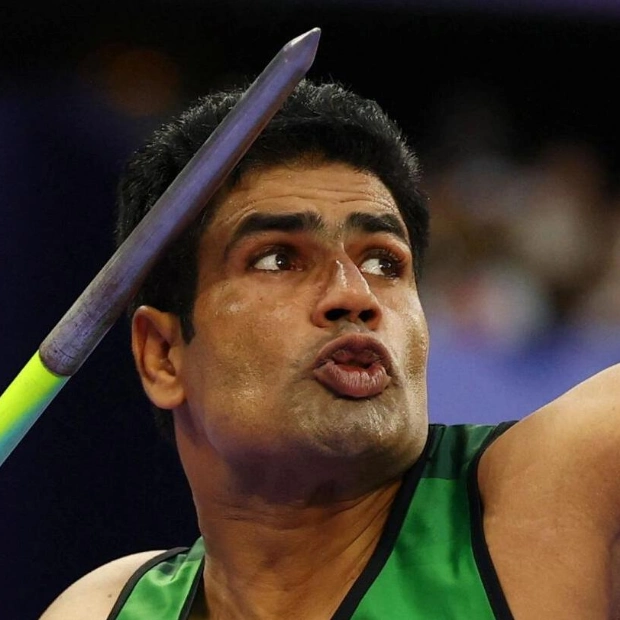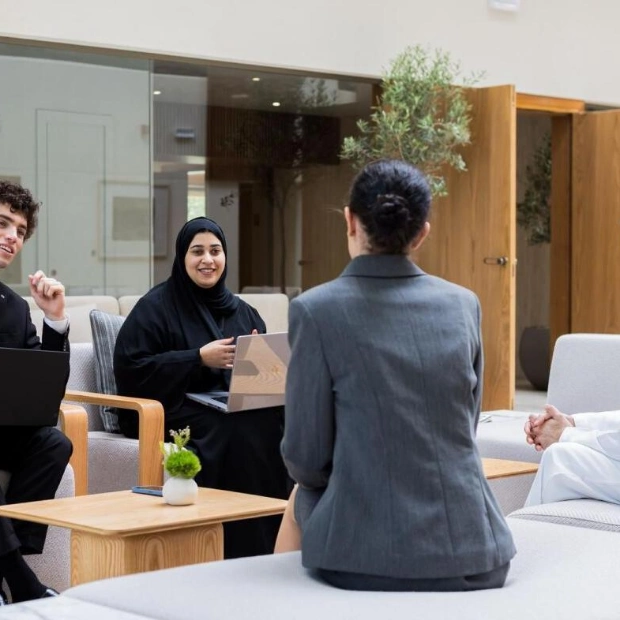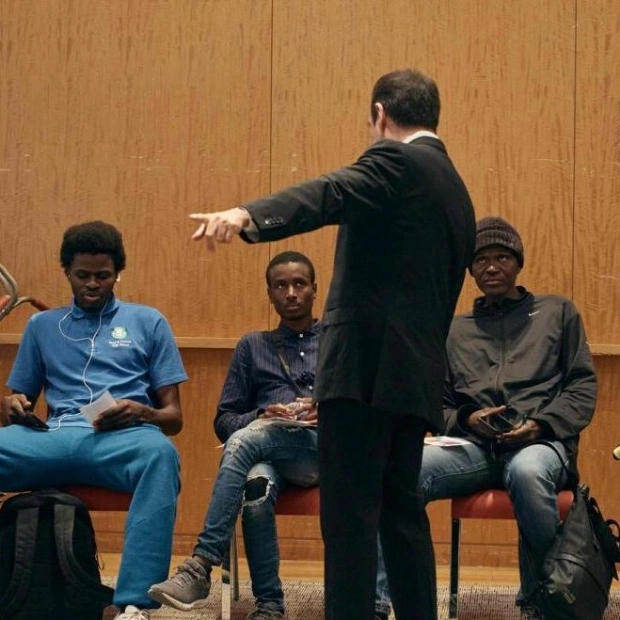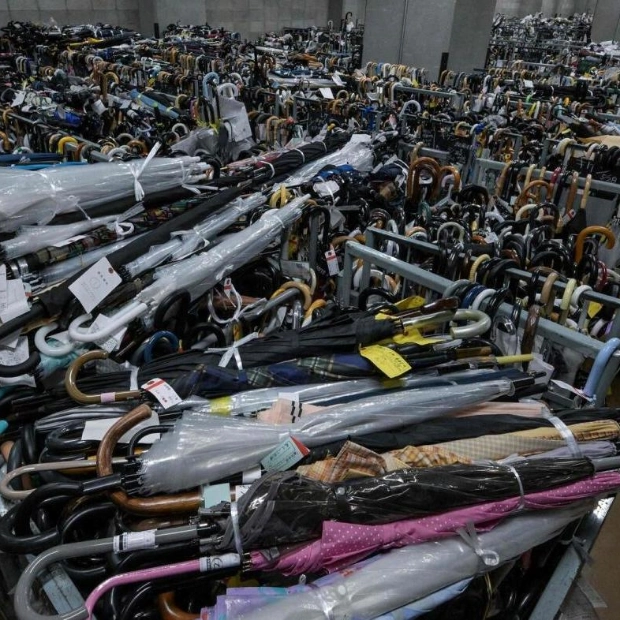On Sunday, tens of thousands of Rohingya refugees gathered in camps across Bangladesh to mark the seventh anniversary of the military crackdown that compelled them to flee, calling for an end to violence and a safe return to Myanmar. Over a million Rohingya reside in dire camps in southern Bangladesh, with little hope of repatriation, as they are largely denied citizenship and basic rights in their homeland. It is believed that thousands have recently escaped from Myanmar’s Rakhine state due to escalating conflicts between the ruling junta’s troops and the Arakan Army, a formidable ethnic militia predominantly composed of Buddhists.
In Cox’s Bazar, refugees of all ages held placards and shouted slogans, with many sporting ribbons inscribed with phrases like ‘Rohingya Genocide Remembrance’. The placards bore messages such as “Hope is home” and “We Rohingya are the citizens of Myanmar.” Hafizur Rahman, a refugee, declared, “Enough is enough. Stop violence and attacks on the Rohingya community.” These recent assaults represent the most severe violence against the Rohingya since the 2017 military campaign in Myanmar, which the UN deemed genocidal, prompting over 73,000 to seek refuge in Bangladesh.
Bangladesh, which is densely populated, asserts that repatriation to Myanmar is the sole solution. However, local hostility has intensified as funding for the Rohingya has dwindled. Bangladesh’s de-facto foreign minister, Mohammad Touhid Hossain, recently told Reuters that the country cannot accommodate more refugees and urged India and other nations to increase their support. Hossain also advocated for greater international pressure on the Arakan Army to cease its attacks on the Rohingya in Rakhine state. UNICEF has expressed concern over the deteriorating conditions in Rakhine, noting a rise in civilian casualties, particularly among children, caught in the hostilities.
UNICEF highlighted that seven years since the mass exodus, approximately half a million Rohingya children are growing up in the world’s largest refugee camp. Mohammed Taher, a Rohingya refugee, emphasized, “We want to return to our homeland with all the rights. The United Nations should take initiatives to ensure our livelihood and peaceful coexistence with other ethnic communities in Myanmar.”
